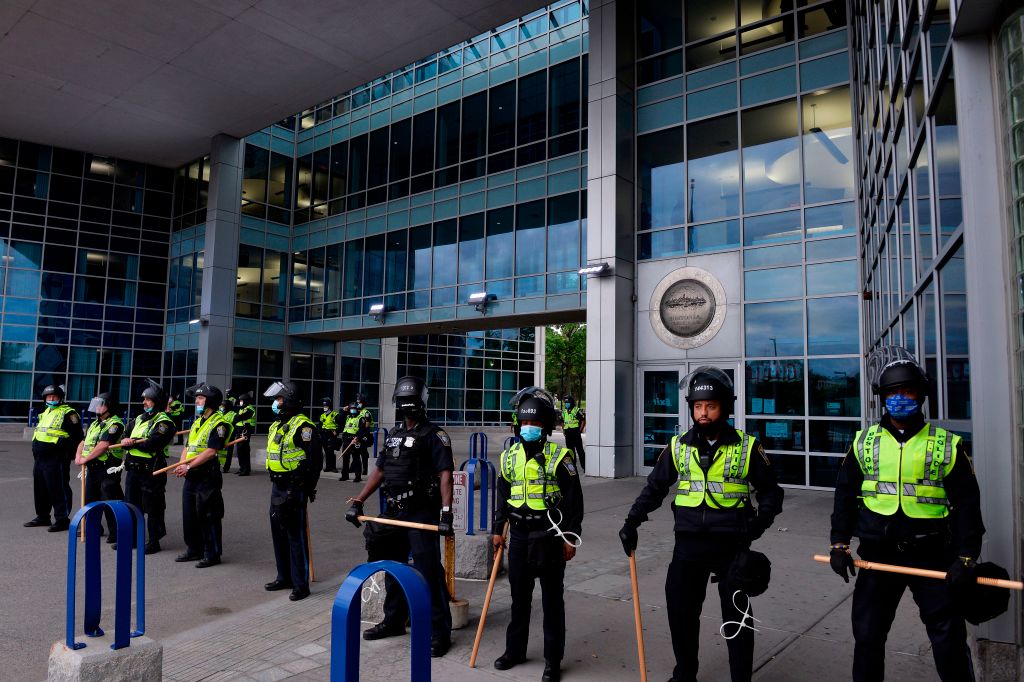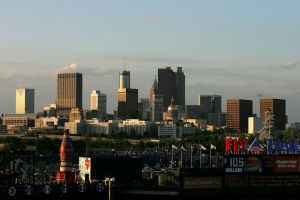One of the best rules of thumb to emerge from systems theory is Stafford Beer’s famous statement: the purpose of a system is what it does. It doesn’t matter what the designer intended, or what the individual participants think they’re doing; the end result is all that matters. It’s a useful thing to bear in mind when we consider the objectives of the Black Lives Matter protesters, because right now the movement is beginning to look an awful lot like a machine for the abolition of police departments. It is frankly dizzying how rapidly the aims of the movement seem to have shifted from reform to destruction. Democratic politicians including Ilhan Omar and Alexandria Ocasio-Cortez are calling for the defunding and abolition of police departments, while Minneapolis — following the ritual shaming of a mayor who had the temerity to support the idea that enforcing laws is useful — has gone a step further in announcing the impending destruction of the force that killed George Floyd. In the online activist ecosystem, left-wing websites makethecase for ‘a world without cops’, while tweets demanding the samerackuptensofthousandsofshares.Quite what happens after the police are abolished, however, is less clear. Some activists employ a curious motte-and-bailey argument, telling us that ‘abolish the police doesn’t mean abolish the police’, and maybe to them it doesn’t; that doesn’t change the fact that it certainly does to some of their comrades-in-arms and the people making decisions, and generally when people tell us what they are it’s best to take them at face value.Arguments for abolition seem to rest on two arguments. The first is that the police are not particularly effective; nice neighborhoods enjoy low crime rates with low police presences, and anyway crime still exists so the police aren’t preventing it. Q.E.D. The second is that crime is the result of unmet needs; remove funding from police forces and put them into community facilities — treatment for drug users, provision of social workers, cash payments, and jobs to keep people fed, housed, and off the street — and there would be no crime left for police to prevent. If we could just get rid of cops, crime will naturally follow.But what if we actually did it? What if we achieved the impossible and abolished the police for good? What would happen? Well, it’s simple: the end result would be the further immiseration of the minority communities these protesters claim to value. The idea that policing offers nothing in the way of crime prevention is based on a set of statistical misunderstandings; areas with high crime tend to have more police precisely because they are areas with high crime. The intuition is laid out nicely in the joke about Russian czar and the plague doctors. The ruler is looking at a map of his country, marked for plague outbreaks, and at the number of doctors in each province when suddenly the great man thumps his fist on the table. ‘God damn them!’ he says, ‘these doctors are worse than useless — wherever they show up, the people are sicker!’To show the actual relationship between policing — and in particular cops on the beat — and crime we need to be a bit subtler. Steven Levitt (of Freakonomics fame) used variation in the number of police officers caused by electoral cycles — if you’re up for re-election, you want to be able to brag about your new hires — to show that each new officer hired would eliminate ~8-10 serious crimes per year. In the UK, academics showed that higher numbers of officers don’t just reduce crime, they also increase the share of crimes reported to the police — a confounding effect that would make a simple comparison across regions inaccurate. On a neighborhood level, papersusing the reallocation of police across areas in response to perceived terror threats to look at what happens when more cops are on the beat — and unsurprisingly, they find that crime falls.But this, of course, is under the present theory of policing, where people have unmet needs. If we simply met them, the argument goes, the relationship between police numbers and crime would fall apart. Well, maybe. But I suspect anyone with some basic understanding of human nature can spot the difference between unmet needs and unmet wants, and knows that for some members of the population the point of theft, violence, or rape is not so much what is obtained as the sense of power over a victim; the idea that some people are simply bad may be out of fashion, but that doesn’t make it untrue. And none of this, of course, has considered the likely responses of the victims of crime. We already know that private individuals and groups are willing to spend substantial sums of money on private security. In a world without police — and with higher crime rates — these sums are likely to increase. It is not inconceivable that the end result of abolishing police forces would be a network of private security firms, accountable only to their employers, and protecting only those areas they are hired to protect.
[special_offer]
This might work out quite nicely for the well-heeled; a private force with no obligation towards outsiders; just like policing, private security reduces crime. But when poorer communities are unable to match this provision, criminal activity is likely to be diverted towards these softer targets, with a consequential effect on local behavior: if the state won’t uphold your rights as a victim, and you can’t afford for a private contractor to do it, then you must take it into your own hands. Vigilante ‘justice’ has historicallytended to pop up where central law enforcement is weak. And in America, of course, the cheapest form of self-protection is the firearm. When crime-rates go up, so do gun sales; what do we think will happen when the police are removed from the picture entirely?The short answer is that we don’t know. We don’t know how any of this would work in practice, because all of our evidence has been gathered in a world where the police do exist, flawed as they are, and where they do work to solve and fight crime. The economist Robert Lucas won the Nobel Prize for his observation that empirical evidence gathered under one set of policies can’t necessarily be used to predict what happens when we change the rules of the game: just because no one has tried to rob a bank doesn’t mean we can get rid of the guards. But what we can say is that in a society where black people consistently earn less than others, are subjected to higher crime rates, and where prejudice is rampant, putting law enforcement into the hands of private individuals without public oversight is a recipe for further entrenching inequality rather than solving it.


















